
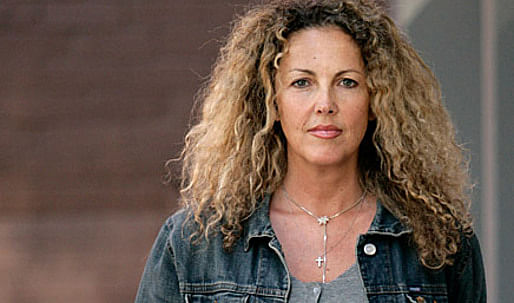
Working out of the Box is a series of features presenting architects who have applied their architecture backgrounds to alternative career paths.
Are you an architect working out of the box? Do you know of someone that has changed careers and has an interesting story to share? If you would like to suggest an (ex-)architect, please send us a message.
This week we present Annalisa Dominoni, an Italian architect who has applied her architectural education and experience to design architecture, products, and clothing for space travel and extreme environments.
Archinect: Where did you study architecture?
Annalisa Dominoni: At the Facoltà di Architettura of Politecnico di Milano.
At what point in your life did you decide to pursue architecture?
When I chose an artistic secondary school, my idea was to continue studies at the Academia of Art, but during those years I developed a strong interest towards architecture, which became stronger when I took my diploma. I've always had the ability to visualize space and volumes in relation to the users and his perception. I liked to think in 3D and work with study models at different scales to understand dimensions and proportions.
When did you decide to stop pursuing architecture? Why?
After my degree in Architecture, I opened an Architecture and Design bureau. At the same time, I wrote for various architecture and design journals such as Domus and Abitare , maintaining a connection with the university (I was assistant in the design courses).
After three years, when I decided to start my academic career, I chose the theme for my PhD “Industrial Design for Space” trying to understand if an architect, a designer, could have a role in this field - generally characterized by engineers, biologists, physics etc, - and what that role would be.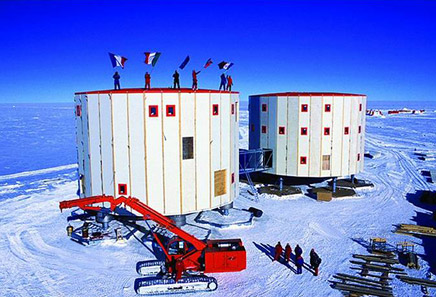
Dome C Concordia Base - Scientific Research on High Antarctic Plateau
Habitability Design Expertise - Dome C Concordia Base, Antarctica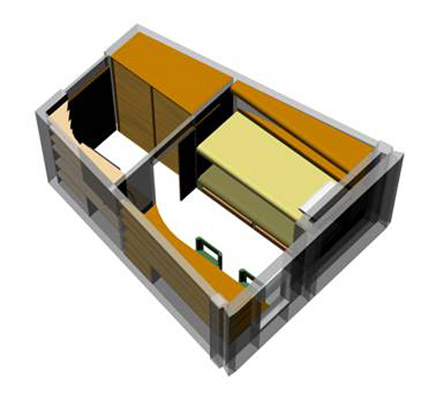
Habitability Design Expertise - Dome C Concordia Base, Antarctica
Fortunately, at that moment, there were two competitions for the technological utilization of the International Space Station. I presented two proposals which were both accepted. The first proposal was the design of a new integrated clothing system to be used during the IVA (Intra-Vehicular Activities), and the second one was the design of a new light fitness system to be used by the crew as a countermeasure in microgravity.
During this time I was the editor and director of Techne Magazine , an important scientific and technology journal which was going very well. With success from the industries and the public, I had the space programs to develop, the PhD… and… no more time to devote to architecture… I had to make a choice…
Describe your current profession.
Professor at the Facoltà del Design of Politecnico di Milano teaching strategic design and innovation systems.
Director of the SPIN-DESIGN LAB project research laboratory, characterized by a wide multidisciplinary transversality, where academic and industrial skills are combined. Research areas of SPIN-DESIGN include space and extreme environment, prosthetic objects, innovation and techno-textile_DESIGN.
My projects aim at increasing comfort and adaptability in extreme and little-known environments, and human conditions encompassing the design of high tech and innovative industrial products.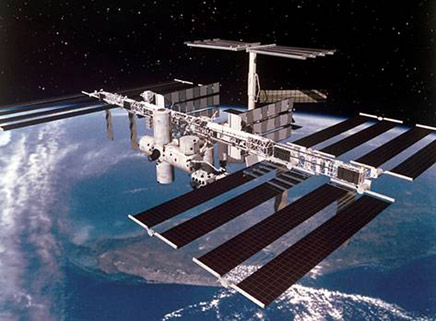
International Space Station ISS
Director of TECHDESIGN research centre, a collaboration between the Politecnico di Milano and TexClubTec. TECHDESIGN research centre aims to study and find applications to market innovative fabrics and materials, defining future scenarios and designing new product families.
Member of AIAA/DECT/ASASC (AIAA, American Institute of Aeronautics and Astronautics, DECT, Design Engineering Technical Committee, ASASC, Aerospace Architecture Subcommittee) in which I am involved in different branches such as Education and Research/Design.
I’ve developed research projects with research bodies as ENEA, and Space agencies such as ASI, Italian Space Agency, ESA, European Space Agency and NASA, with the co-operation of major industries such as Thales Alenia Space and Laben, and the other companies such as ABB, Aerosekur, Benetton Group, Domino, Electrolux Zanussi, Sealed Air, TechnoGym, Prada, Usag etc.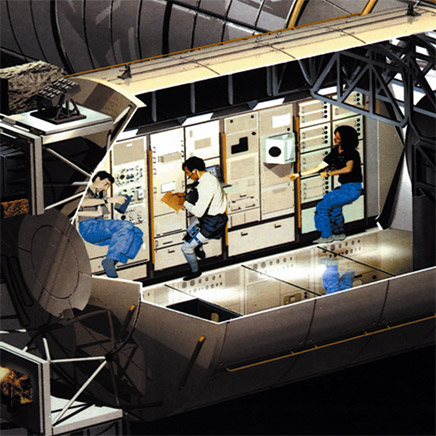
Columbus Module at the International Space Station ISS
Experiment in Space
My Space design projects have been tested on board the International Space Station, ISS, by the astronaut Roberto Vittori.
Principal Investigator of VEST Experiment, an integrated clothing support system to be used in microgravity condition, launched from Baikonur Space base in Kazakistan, MARCO POLO Mission, ASI, April 2002.
Principal Investigator of GOAL (Garments for Orbital Activities in weightLessness), ENEIDE Mission, ESA, April 2005, obtaining the ENEIDE MISSION AWARD from ESA.
GOAL, Garments for Orbital Activities in weightLessness, ENEIDE Mission
I’ve developed many feasibility studies on habitability in extreme environments as BASE CONCORDIA in Antarctica, a feasibility study to design alternative solutions for interiors and equipment, ENEA, 2002, and in Space conditions as MEEMM, a feasibility study to increase usability of experimental equipment on Columbus Laboratory of the International Space Station, ESA, 2003.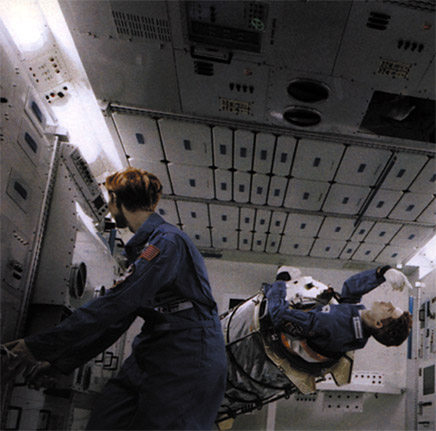
Intra-Vehicular Activities IVA
Publications
The results of my research projects have been presented in international conferences and published in proceedings and scientific journals.
In 2002, I published the book “Industrial Design for Space” that contains the reflections and the projects for living in Space and that defines the role of design in Space project activities.
From 1999 to 2001, I was editor and director of the technological innovation journal “Techne World Wide Magazine” .
What skills did you gain from architecture school, or working in the architecture industry, that have contributed to your success in your current career?
As a space architect, I design Lunar and Mars bases and equipment which requires specific skills and competence similar to traditional architecture disciplines. Also, technology and innovation have been very important in my career to define a new field of application in different areas, from intelligent fabrics (think about textile materials for inflatable habitation modules in Space but also tensile structure used in different context on Earth…) to nanotechnologies (for example the sensor systems integrated into materials to monitoring building structures and equipment, or the surface nanostructured treatments to improve the performances of the materials…) taking in mind the importance of the user’s need in relation with the design of the artificial world, the “third skin” (the architecture).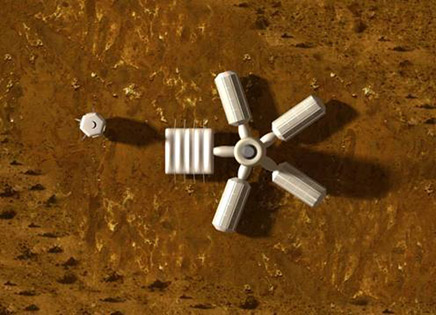
Mars base design for Facility for Integrated Planetary Exploration Simulation (FIPES)
Do you have an interest in returning to architecture?
As you can see, there are so many skills and activities in common between my current work and architecture that allow me to maintain my interests in a “design continuum” made of objects and tools at different scales. As says a famous title from Triennale’s exhibition in Milan “From spoon to the city” . At the same manner, I could say “From Space to the Earth” .
Creative Commons License
This work is licensed under a Creative Commons License .
/Creative Commons License
5 Comments
beam me up annalisa!
An inspiration!
good!
Working out of the Box : Working in the cylinder !!!
good question juan :D
Block this user
Are you sure you want to block this user and hide all related comments throughout the site?
Archinect
This is your first comment on Archinect. Your comment will be visible once approved.